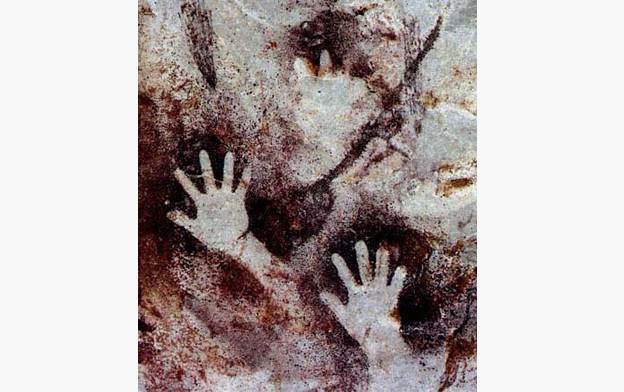'Literary Environments: Place, Planet and Translation' (Gold Coast, Australia)

The Australian Association for Literature’s annual conference for 2017, Literary Environments: Place, Planet and Translation, will be held at Griffith University’s Gold Coast campus on July 17–19, 2017.
This year’s conference organizers, Peter Denney and Stuart Cooke, have assembled a stellar line-up of keynotes for the conference:
Ursula Heise (UCLA): “Planet of Cities: Urban Environments and Narrative Futures”
Alan Bewell (University of Toronto): Place, Emotion, and the Colonial Translation of Natures”
Stephen Muecke (UNSW): “Theorising Literary Environments”
Jerome Rothenberg (UC San Diego): “Technicians of the Sacred: Ethnopoetics and the New Indigenous Poetries”
Literary Environments is concerned with the different environments in which literature can occur, and our methods of translating between them. At this critical juncture in the Anthropocene, planetary responsibility and situated knowledges need to be entwined in propositions for social and environmental justice. Bodies, texts, and artworks are converging in old and new forms of politics and earthly accountabilities. The task of translation between these increasingly interconnected modes of existence is a crucial one: life in all of its manifestations — from DNA to forests — has textual qualities. What does it mean to “read” such a staggering variety of data?
While this conference is primarily concerned with literature, we envisage it as a multidisciplinary event. We have therefore invited and scheduled papers on any aspect of the environmental humanities, from environmental history to environmental philosophy. We have also welcomed papers addressing literary environments that are not ecological in orientation, such as studies of literary spaces, communities, and so on.
Spread over a three-day period, the conference will consist of some ninety papers and thirty panels.
What follow here are abstracts of the four keynote speeches:
Stephen Muecke
“Theorising Literary Environments”
Literary texts live and die through the environments in which they are nurtured. When cradled in networks of devotion, or at least attachment, literary forms not only survive, but can expand their spheres of influence. I like to think of this expansion as reproductive: not only Benjamin’s “mechanical reproduction,” but also organic, generative, and multispecies reproduction. Expanding, or rather extending human capacities is the “business” of literary experimentation, but we are never quite sure where “the human” and “capacity” begin and end. Examples from oral literature and poetry will describe chains of reference, chains of affect, technological extensions and those necessary hiatuses — risks of reproduction — that remind us that aesthetic creation is
best conceived of not as communication (bridging subject and object), but something more like the miracle of germination.
Jerome Rothenberg
“Technicians of the Sacred: Ethnopoetics and the New Indigenous Poetries”
Coincident with the publication of an expanded fiftieth anniversary edition of Technicians of the Sacred, I will explore the early history of ethnopoetics for which that book was one of the early starting points. Drawing from the new introduction to the book I will begin with the emergence in the 1950s and 1960s of a specifically delineated “ethnopoetics” as a collaborative work of poets and scholars to which I was a close witness and active participant. I will then propose a linkage to the survival and revival of many indigenous languages and poetries in the early twenty-first century, with a sense that change rather than stasis has been at the heart of these poetries as well as of our own.
Alan Bewell
“Place, Emotion, and the Colonial Translation of Natures”
Through a discussion of colonial natural history and John Keats’s Lamia, this paper will
emphasize the degree to which colonial natural history can be understood as being inherently a translational activity available to analysis from the perspective of translation theory. I will argue that the experience of translation, the feeling of being in translation, of having been translated to a new place where strange things seemed somehow familiar, or familiar things took on an uncanny strangeness, the feeling of being between-worlds that were themselves in motion, was not restricted to colonial encounters with other cultures, but also fundamentally shaped, in diverse ways, how people, during the colonial period, related to the natures around them. My hope is that this paper will contribute to the important work that is currently being done on the history of emotions by suggesting the manifest ways in which translation shaped how both settlers and indigenous peoples came to understand the natural world.
Ursula Heise
“Planet of Cities: Urban Environments and Narrative Futures”
In 2008, humanity crossed a historical boundary: more than fifty percent of the global population now lives in cities, and future population growth will mostly occur or end up in urban areas. This means that humans’ most important habitat now and for the future is the city, a historical shift that entails important ecological as well as social and cultural consequences. “Planet of Cities” will focus on the new interest in urban ecology in disciplines as varied as architecture, biology, design, literary studies, political science, and urban planning through the lens of narrative. How are the city and its relation to nature being envisioned in contemporary fiction and film? What narrative strategies work and which ones fail when it comes to imagining the environmental futures of rapidly growing cities? How do stories focusing on the present and future of cities integrate human and nonhuman actors and networks? The presentation will approach these questions theoretically and through a comparatist analysis of urban narratives from different regions and languages, with a particular focus on science fiction.
Poems and poetics